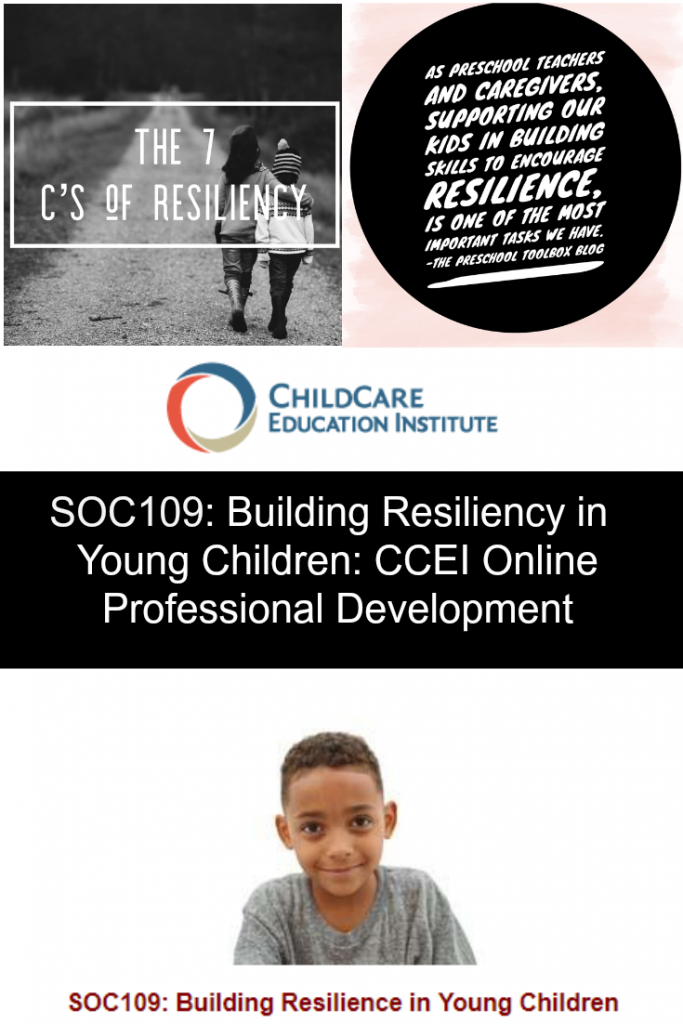
According to Edith Grotberg, renown developmental psychologist, resilience is important because it is the human capacity to face, overcome, and be strengthened (or even transformed) by the adversities in life. As teachers and caregivers, gaining tools for building resilience in young children, through ChildCare Education Institute professional development, will help us support all young children in building resilience with compassion, love, empathy, and understanding.
SOC109 Building Resilience in Young Children – ChildCare Education Institute Professional Development
Disclosure: this post and others within the blog contain affiliate, distributor, and/or sponsored content and links. Please see our updated privacy policy for full disclosures and more information. The following is a sponsored review from ChildCare Education Institute.
Recently, I had an opportunity to take an amazing professional development course, SOC109 Building Resilience in Young Children, through ChildCare Education Institute. The course was easy to follow, the structure was thorough, yet simple, and I took away relevant tools for building resilience within our own preschool program. The SOC109 course, Building Resilience in Young Children, offers all the tools you will need to guide and support your own preschoolers in growth toward resiliency. The course objectives are as follows:
- Define the term resilience
- Recognize the impact of childhood trauma
- Identify the traits that are considered the building blocks of resilience
- Recognize the parent, teacher, and/or caregiver’s role in supporting the development of resilience
- Select appropriate strategies that will help children develop resilience
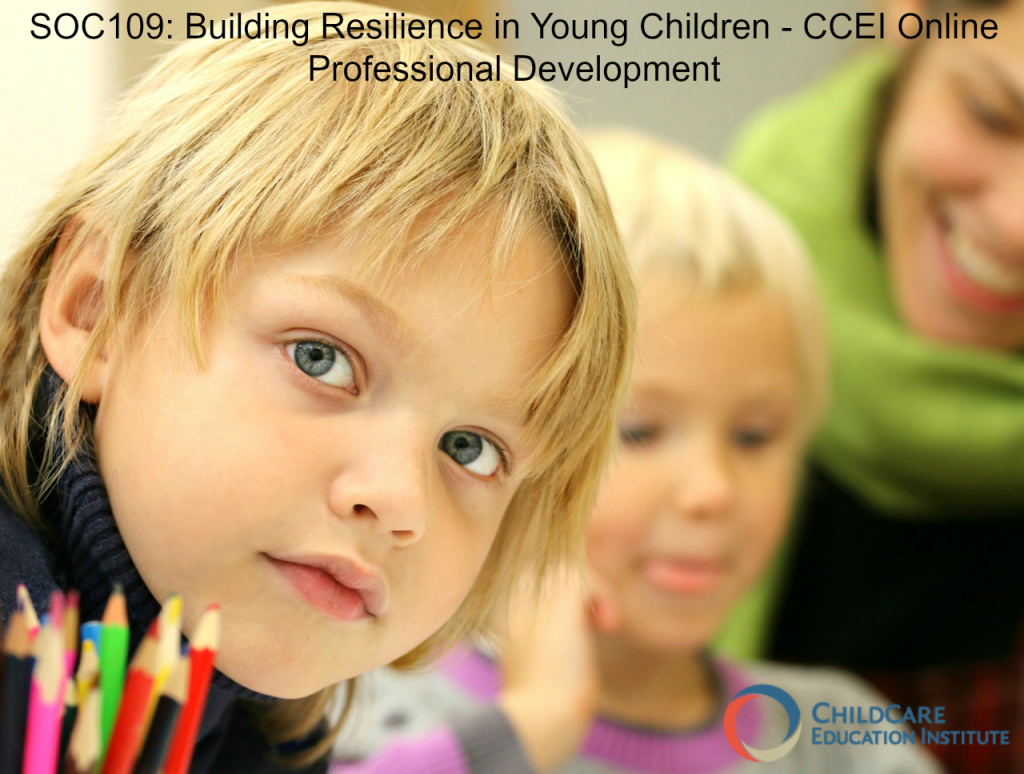
I am even more convinced, after completion of ChildCare Education Institute’s course SOC109, there is no greater gift we can offer our preschoolers than helping them garner the appropriate social and emotional skills to overcome the effects of adversity, trauma, tragedy, threats, or significant stress in life. Students come to us from a wide variety of backgrounds – many of them have faced more life trauma in their own few short years than we have known as adult caregivers and educators. Mental resilience can be taught over time. Resilience must be encouraged and supported with developmentally appropriate practices at home or in the preschool classroom. The 7 C’s, the Essential Building Blocks for Resilience, offered within ChildCare Education Institute’s course are a guide for supporting preschoolers in growth toward resilience.
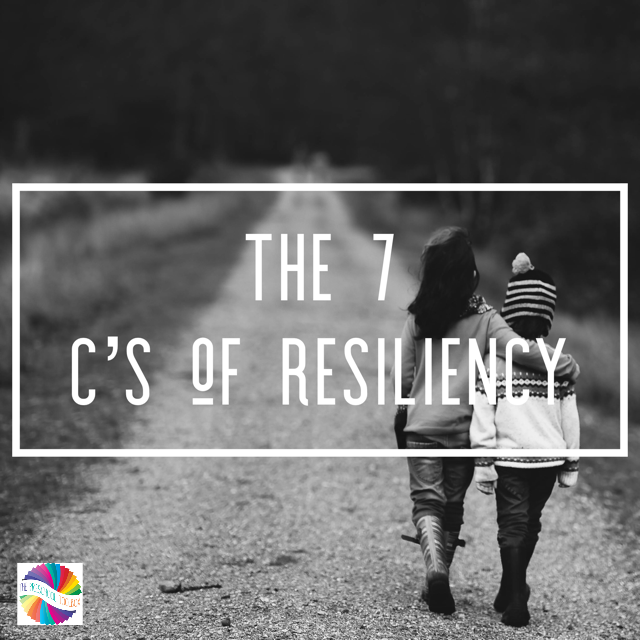
The 7 C’s: The Essential Building Blocks of Resilience in Children
Kenneth Ginsburg, M.D., MS Ed, FAAP, joined forces with the American Academy of Pediatrics (AAP) to author A Parent’s Guide to Building Resilience in Children and Teens: Giving Your Child Roots and Wings. In the book, Dr. Ginsburg identifies The 7 C’s: The Essential Building Blocks of Resilience.
Each of the 7 building blocks support the development of mental resilience, emotional intelligence, and self-regulation. SOC109 Building Resilience in Young Children from ChildCare Education Institute, offers a 19-page printable hand-out, videos, visuals, and questions/answers within the course to reflect on ideas presented in order to successfully implement them at home, in childcare or in the preschool classroom.
- Competence – occurs in an environment that promotes independence and opportunities to explore open-ended materials that contribute to competence – new tasks and new risks offer opportunities to practice. Failure doesn’t breed competence; practice, repetition, and perseverance do.
- Confidence – competence then encourages a preschooler’s belief in their own skills and abilities to achieve tasks and goals. Confidence is cemented when kids have support to recognize their own ability to make progress toward a goal.
- Connection – the MEANINGFUL relationships we build with others. Without REAL relationships with our kids and students, they cannot trust teachers and caregivers for the sense of security necessary to develop resilience. Demonstrating love, compassion, and empathy for each child is paramount in encouraging kids toward resiliency – connections MATTER.
- Contribution – the role each child plays within the larger success of the home, classroom, school, community, and the world. Acts of kindness and giving begin at home and in preschool by encouraging developing skills. Preschoolers are egocentric, but so much more. They have a desire to be helpful especially when REAL connections and relationships are established.
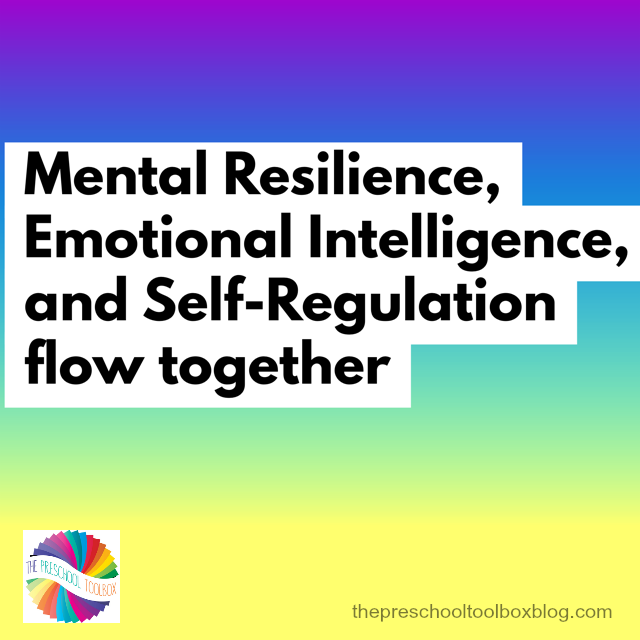
- Character – the understanding of right and wrong or having morality/values. Role play and modeling, without shaming, offer opportunities to explore and discuss classroom values with your preschoolers.
- Control – the ability to influence outcomes and the course of events. Giving preschoolers opportunities to make choices and develop an understanding of things they have control over in their own lives.
- Coping – the ability to face challenges or adversities in a calm and healthy manner. Helping kids persevere despite challenges and move forward with real strategies to help. Again, role play and social stories can greatly enhance a preschooler’s abilities to cope with many challenges.
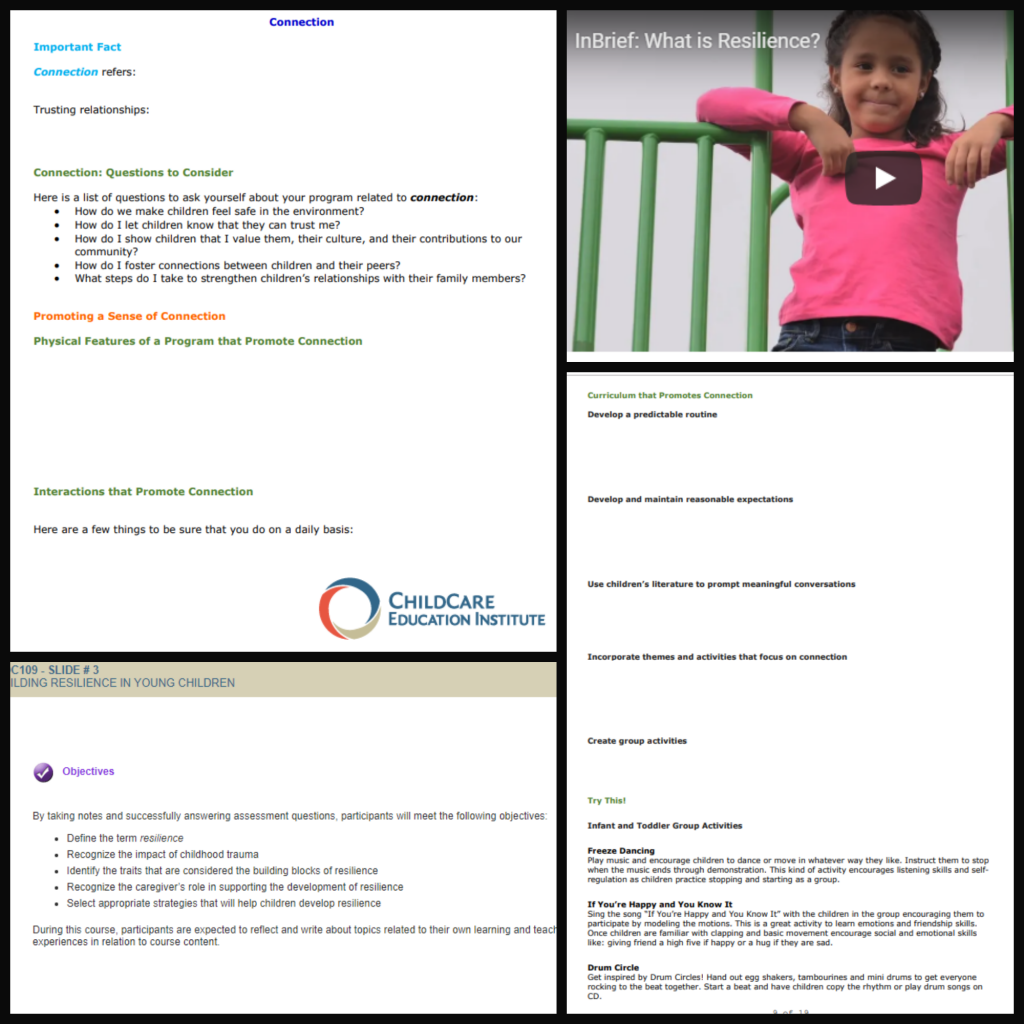
Why Should You Choose Online Professional Development through ChildCare Education Institute?
ChildCare Education Institute’s course, SOC109 Building Resilience in Young Children, focuses on important questions educators and caregivers must ask in order to help preschoolers develop each of the 7 building blocks to resilience. With guided videos, key question/answer components, and a thorough (printable) hand-out, the course offers practical guidance on steps, activities, and feedback to implement the 7 C’s of resiliency successfully at home, in childcare, or in the classroom. The course can be completed entirely online in the comfort of your own home (24/7/365). Teachers and caregivers are busy, especially this time of year. I love to attend seminars and professional development courses, but it isn’t always possible with time constraints.
With ChildCare Education Institute courses, it’s easy to guide your own professional development and explore the many options for gaining new credentials and tools for teaching and working with preschoolers. Building Resilience in Young Children, from ChildCare Education Institute, is truly one of the best online professional development courses I’ve had the pleasure of taking this year. Check out the many professional development courses and certificate programs available at ChildCare Education Institute.
Please note: Upon course completion, a continuing education certificate is granted. In many cases, the hours can be sent directly to the gateway or registry entered for professional development. IACET CEU’s awarded for completed coursework are available with no additional fees.

About ChildCare Education Institute:
ChildCare Education Institute provides high-quality, online training courses and programs, applicable to those who work in an array of childcare settings, including center-based care, Head Start, family childcare, Pre-K classrooms, after-school environments, and more. Over 150 English and Spanish training courses are available to meet licensing, recognition programs, or Head Start requirements. CCEI also has online certification programs that the coursework requirement for national credentials including the CDA, Director and Early Childhood Credentials, CCEI, a Council for Professional Recognition CDA Gold Standard training provider, is nationally accredited by the Distance Education Accrediting Commission (DEAC) and is accredited as an Authorized Provider by the International Association for Continuing Education and Training (IACET).
- 99 percent of students say they would recommend CCEI to others
- Over 5 million online course hours completed
- Graduated over 13,000 early childhood professionals from CDA and other certificate programs
- Web-based coursework is available 24/7/365
- IACET CEU’s awarded for completed coursework at no additional coast.